Tag: samsung
Blackberry denies Samsung buy out
 Blackberry has moved to dismiss claims that it is about to be bought by Samsung.
Blackberry has moved to dismiss claims that it is about to be bought by Samsung.
The source of the rumours was Reuters which claimed that a deal was close and Samsung was ready to make an offer that John Chen and BlackBerry’s board may be reluctant to refuse. Samsung is willing to pay roughly $7.5 billion for BlackBerry’s assets – including its patent portfolio – Reuters claimed.
Apparently Samsung became interested in Blackberry two months after the two companies entered a strategic partnership to bring BlackBerry’s BES12 cross-platform EMM solution to Galaxy smartphones and tablets that feature embedded KNOX technology. At the time, the two companies indicated that they were looking forward to future ventures together.
The move seems all logical, but it is not quite, but completely and utterly untrue claimed Blackberry.
In a statement the company said it was aware of certain press reports published today with respect to a possible offer by Samsung to purchase BlackBerry.
“BlackBerry has not engaged in discussions with Samsung with respect to any possible offer to purchase BlackBerry. BlackBerry’s policy is not to comment on rumours or speculation, and accordingly it does not intend to comment further,” the phone maker said.
Samsung browses Blackberry
 A breaking story today entails Samsung’s approach to Blackberry Ltd. in talks to buy the embattled smartphone maker for a reported $7.5 billion – Samsung is apparently buffing up their intellectual property portfolio to stave off a continuing onslaught by Apple Inc. The news sent Blackberry’s stock price up 30 percent.
A breaking story today entails Samsung’s approach to Blackberry Ltd. in talks to buy the embattled smartphone maker for a reported $7.5 billion – Samsung is apparently buffing up their intellectual property portfolio to stave off a continuing onslaught by Apple Inc. The news sent Blackberry’s stock price up 30 percent.
Samsung offered a trading range of $13.25 to $15.49 per share, a premium of 38 percent to 60 percent over Blackberry’s current trading price according to Reuters. What’s not clear is the depth of the deal and what it might entail – there’s speculation that the deal has several versions that are currently under discussion. That the story was leaked and by who leaves one wondering whether this is a negotiation tactic or just business as usual.
BlackBerry announced in November a high-profile security partnership with Samsung. The partnership aims to wed BlackBerry’s security platform with the South Korean company’s own security software for Galaxy devices.
Blackberry has been struggling to regain lost momentum in a competitively crowded market. Samsung’s smartphone business is experiencing losses from lower price Chinese competitors which now are affecting their semiconductor division – reports of bargain prices for NAND-Flash smartphone memory devices are widely circulated.
Techeye Take
Analyzing Samsung’s needs, wants and desires indicate the company is obsessing over security – key to the company’s entry into the electronic wallet market space. Secure communications is and will continue to be a premier element of the continued evolution of the smartphone market – even governments demand it.
The question remains, will this set off a bidding war for Blackberry?..,
Update
Both Samsung and Blackberry have denied that they are in talks for Samsung to takeover the Canadian company.
“BlackBerry has not engaged in discussions with Samsung with respect to any possible offer to purchase BlackBerry,” the company said in a statement Wednesday.
Post Script
Where there’s smoke there’s generally fire – stay tuned…,
GloFo takes aim at China
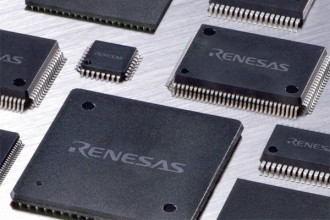 Abu Dhabi foundry company Global Foundries (GloFo) is seeking to make more partnerships in mainland China.
Abu Dhabi foundry company Global Foundries (GloFo) is seeking to make more partnerships in mainland China.
Samsung profits slump
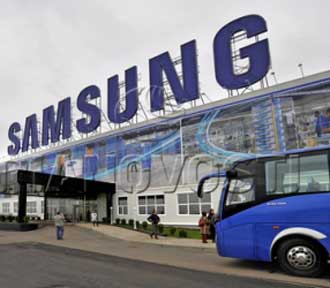 Samsung confirmed its first annual profit decline since 2011, but said that a fourth quarter pick up indicated that earnings may have stabilised.
Samsung confirmed its first annual profit decline since 2011, but said that a fourth quarter pick up indicated that earnings may have stabilised.
The smartphone maker lost market share for three consecutive quarters up to July-September, and analysts say the trend likely continued in the October-December period.
The Tame Apple press claims it is because Samsung cannot beat the super bendy iPhone 6, but it is more likely that Samsung has seen its Chinese market disappear to locally made brands. It has also suffered from a weak won, which explains its limp.
Healthy memory chip demand and improvements in the mobile business on the back of new mid-to-low tier smartphones are buoying hopes that Samsung has at last staunched the bleeding.
Samsung said its fourth-quarter operating profit is likely to be $4.74 billion, beating what the cocaine nose jobs of Wall Street had predicted.
The outlook means Samsung’s 2014 profit will probably be the weakest in three years, although it marks a rebound from the third-quarter’s profit which was the firm’s lowest quarterly result in more than three years. The company is expected to release its annual results later this month.
Most analysts expect profits to continue improving through at least the second quarter of 2015 with the outfit’s semiconductor division to do much better than the mobile business in October-December.
The company did not provide a breakdown of its earnings figures in Thursday’s outlook, but a person with direct knowledge of the matter said that components sales picked up across the board, with healthy demand for memory chips and higher liquid crystal display panel prices.
The mobile division’s contribution to Samsung’s profit has slipped from about 68 percent at its peak in 2013 to about 44 percent in the third quarter.
Samsung aims at internet of things
 The CEO of Samsung has made a bid for his company to become an active player in the internet of things (IoT) by putting uo funding for developers.
The CEO of Samsung has made a bid for his company to become an active player in the internet of things (IoT) by putting uo funding for developers.
Chip sales up in 2014
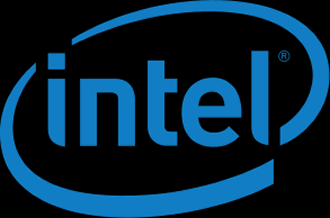 A report from Gartner said the top 25 vendors revenues rose by 11.7 percent, with those vendors grabbing 72.1 percent of the entire market revenues.
A report from Gartner said the top 25 vendors revenues rose by 11.7 percent, with those vendors grabbing 72.1 percent of the entire market revenues.
LG presses on with OLED
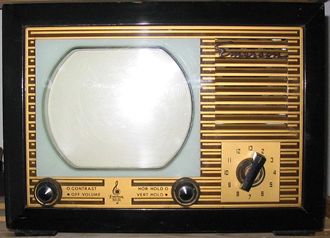 While the rest of the display world abandons plans for OLED as too expensive for the big screen, LG is hanging on to the technology.
While the rest of the display world abandons plans for OLED as too expensive for the big screen, LG is hanging on to the technology.
LG Display has announced it will increase production capacity of organic light-emitting diode (OLED) panels for TVs.
LG Display and its sister company, LG Electronics, claim OLED TV will give them a competitive edge over rivals once the technology matures.
LG Display said it would more than quadruple the monthly production capacity of OLED TV panels to 36,000 units by the year-end from 8,000 currently.
The companies say OLED is far superior to the mainstay liquid crystal display (LCD) technology, offering better picture quality as well as lower power consumption.
However it admits that costs, however, are much higher, making OLED TVs several times more expensive than LCD sets. LG Electronics’ 65-inch ultra-high-definition OLED TV launched in South Korea last year was priced at $10,874, more than three times the price of a comparable LCD TV by the same company.
Samsung has given up on OLED, saying the technology is not ready yet for mass consumption. It has focused on quantum dot technology instead.
LG Display finished building a $640.58 million factory to increase production of OLED TV panels. The panel maker did not comment on its investment plans for 2015.
It is not as if LG is betting the farm on OLED, it is also launching its own quantum dot TVs alongside OLED products this year in what it says is a two-track strategy.
Chinese phone company revenues soar
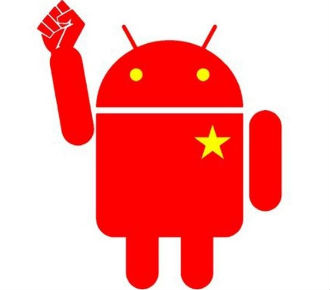 Xiaomi Technology, which is beginning to challenge smartphone players including Samsung and Apple, turned over close to $12 billion in 2014, according to its CEO.
Xiaomi Technology, which is beginning to challenge smartphone players including Samsung and Apple, turned over close to $12 billion in 2014, according to its CEO.
Nvidia takes the licensing route
 In a bid to generate more revenues, graphics firm Nvidia is to start licensing its GPU designs to other companies.
In a bid to generate more revenues, graphics firm Nvidia is to start licensing its GPU designs to other companies.Samsung confirms Tizen TV move
 Samsung has confirmed that it is moving all its new smart television products launched in 2015 to its operating system which is named after a particularly loud sneeze.
Samsung has confirmed that it is moving all its new smart television products launched in 2015 to its operating system which is named after a particularly loud sneeze.
Tizen will give smart tellies additional software and connectivity functions, such as video streaming and web browsing capabilities.
Kim Hyun-suk, Samsung’s president of visual display business said that while Samsung is focusing on Tizen, the hope was that other TV makers will follow suit and help build an ecosystem that will help the platform grow.
Televisions are only part of Samsung’s Tizen plans. The idea is that a few smartwatches and cameras will also use it.
Samsung has been keen to move to Tizen to break it free from Google’s iron grip with its Android platform. Some pundits think that it will not take off until Samsung builds a successful smartphone with it.
This will encourage developers to write software for Tizen. Certainly TVs will increase the platform’s user base, even if it is not the normal sort of market developers write for.
Smartphone brands cleared by Taiwan’s watchdog
 Tawian’s watchdogs have cleared China’s Xiaomi and other smartphone brands of breaching data protection laws after national security concerns triggered a government probe.
Tawian’s watchdogs have cleared China’s Xiaomi and other smartphone brands of breaching data protection laws after national security concerns triggered a government probe.
The National Communications Commission said all the 12 brands it had tested, which also included handsets sold by Apple, Samsung, LG and Sony , did not violate the laws.
James Lou, an NCC official who was involved in the testing, said the commission, however, would request mobile phone makers make information transmission more secure.
The probe was started over concerns that the Chinese handset makers Huawei and ZTE were being used as snooping tools by the Chinese.
Taiwan is a bit sensitive to security matters involving China, which is its largest trading partner, but has never renounced the use of force to take back what it deems a renegade province.
Xiaomi, whose budget smartphones are popular throughout Asia, was previously accused of breaching data privacy. In August, the company said sorry and changed a default feature after a Finnish security company said Xiaomi collected address book data without users’ permission.
Taiwan’s government began performing independent tests on Xiaomi phones after media reports said that some models automatically send user data back to the firm’s servers in mainland China.
The probe was then widened to include local and foreign handsets. The NCC report said handsets made by HTC Corp, Asustek, Far EasTone, Taiwan Mobile and InFocus Corp, whose handsets are made by Taiwan’s Hon Hai Precision Industry were also cleared of breaching the data protection laws.
Apple ruled Christmas
 A report from Flurry indicated that Apple seriously outdid its competitors over the Christmas period.
A report from Flurry indicated that Apple seriously outdid its competitors over the Christmas period.
The metrics company said that of all the devices activated in the week up to Christmas Day, Apple ruled the roost with 51 percent of device activations.
Samsung devices took second place with 17.7 percent of activations, Nokia took 5.8 percent, Sony took 1.6 percent and LG managed a measly 1.4 percent.
Microsoft owns Nokia now so it could be said to be third in the pecking order.
Flurry Analytics said the figures indicated that the introduction of Apple’s iPhone 6 and iPhone 6 Plus had a “blockbuster” holiday season, beating the somewhat dismal gizmo trend.
Flurry also said that the largest number of app installs on Christmas Day, with 2.5 times the installs compared to any day in the previous three weeks.
The company also managed to track the type of device, with full size tablets taking 16 percent, small tablets 17 percent, “phablets” three percent, medium phones 58 percent and smalll phones seven percent.
Analysts tip tablet sales
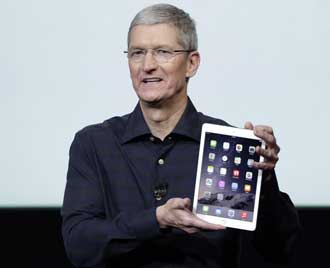 Despite evidence that sales of tablets showed signs of decline in 2014, one market intelligence is bucking the trend by predicting healthy sales in 2015.
Despite evidence that sales of tablets showed signs of decline in 2014, one market intelligence is bucking the trend by predicting healthy sales in 2015.
ABI Research said that although 2014 was “lacklustre”, it predicted that there will be solid growth during the next five years with shipments of tablets close to 290 million units in 2019.
But the growth is not for every vendor – Amazon, Apple, Barnes & Noble and Google will show year on year falls in shipments.
On the other hand, Acer, Asus, Dell, HP, Lenovo, LG, Microsoft and Samsung are predicted to show higher volumes in 2014.
Senior analyst Jeff Orr doesn’t have good news for Apple. He said: “Historically, Apple has counted approximately 35 percent of its iPad sales in the last calendar quarter of the year. Unless Apple can pull off a 32+ million unit quarter, sales for 2014 will be down for the first year since the iPad launched.”
He said that Apple probably shipped 68 million iPads in 2014, but managed to sell 74 million in 2013.
On the operating systems front, Android has 54 percent of branded tablets, Apple iOS has fallen to 41 percent, and Windows 8 has a meagre five percent of shipments.
LG in sabotage probe
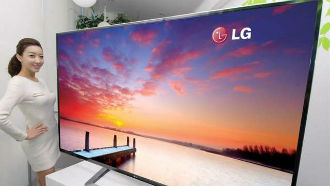 Prosecutors raided the headquarters of LG as part of a probe into whether the South Korean company had damaged the washing machines of rival Samsung Electronics at retail stores in Germany.
Prosecutors raided the headquarters of LG as part of a probe into whether the South Korean company had damaged the washing machines of rival Samsung Electronics at retail stores in Germany.
Apparently there is an increasingly bitter rivalry between the two companies which compete in home appliances, TVs and smartphones.
Samsung had asked the Seoul Central District Prosecutors’ Office to investigate LG employees who were seen deliberately destroying several of its premium washing machines on display at two stores in September ahead of the IFA electronics show in Berlin.
Investigators searched the Seoul offices of LG home appliance head, Jo Seong-jin, and others and secured documents and computer hard disks related to the IFA fair, Yonhap News Agency said. They also combed through LG Electronics’ home appliance factory in the southeastern city of Changwon and gave it a rigorous parting.
LG said that it regretted today’s raid.
“Our company – a global company – was raided as a result of a rival’s unilateral and excessive claims, and we are concerned that this would seriously undermine our corporate activities and external credibility,” it said.
It appears that Samsung is a little worried that someone might sabotague its stands at the forthcoming CES show.
Samsung sued LG Electronics employees after the incident in Germany, and LG said the company has counter-sued Samsung employees.
Prosecutors banned LG’s Seong-jin from leaving the country ahead of the Consumer Electronics Show (CES) to be held January 6.






